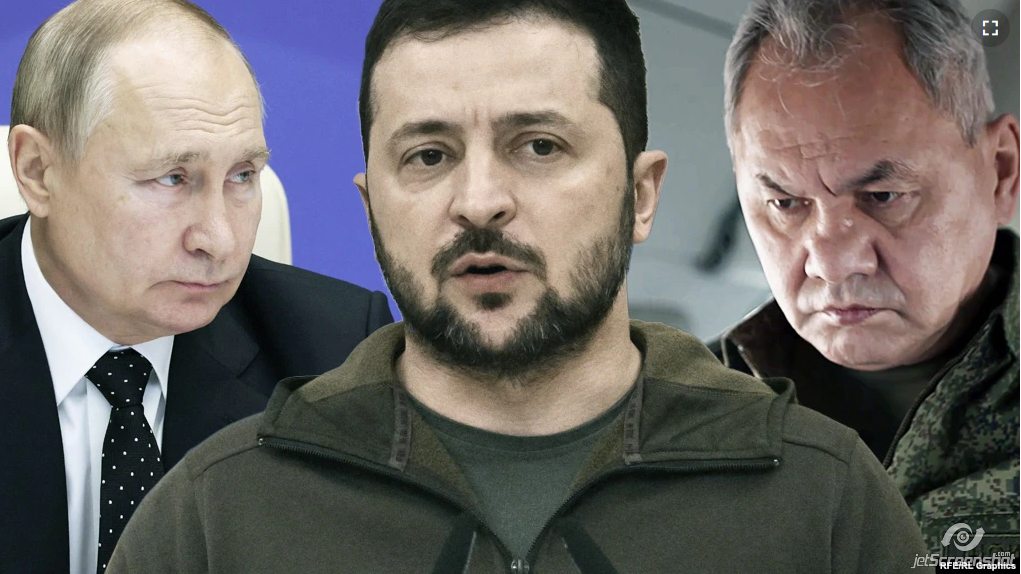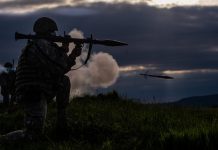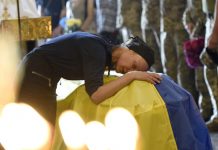By Ksenia Kirillova, for Jamestown Foundation
In the 12th month of Russia’s war against Ukraine, analysts close to the Kremlin are increasingly sounding the alarm that the Russian people should prepare for a long-term conflict. At the same time, in the past, such statements were always accompanied by propaganda narratives about the United States dragging Russia into a protracted war. Now, propagandists claim that a long war primarily benefits Moscow.
At the end of January 2023, a long anonymous article appeared on a pro-Kremlin website, the essence of which boiled down to the idea that the protracted war in Ukraine was not a forced necessity, but “Putin’s cunning plan.” The author asserts that Western analysts are absolutely right when they say that Russia “will have enough resources for many years, but the reserves of Western military arsenals will be seriously depleted, while their economy suffers.” The propagandist states that the transition from offensive to defensive operations will allow Moscow to carry out large-scale changes in the composition of the Russian Armed Forces, increase their numbers and ensure the timely supply of weapons and equipment. “No one is in a hurry,” the author concludes (Topcor.ru, January 19).
This article is not a lone opinion, but part of an increasingly widespread narrative. Experts from one of Russia’s main propaganda programs, Soloviev Live, also assert that Moscow’s best strategy in this situation is to wait for the moment when the West shows all its cards and demonstrates how far it is willing to go in support of Ukraine. The program encourages holding out “until the last Ukrainian dies” (YouTube, January 23).
It seems that the Kremlin’s main hope is to bet on the depletion of Ukrainian manpower, which Moscow expects to run out before Kyiv receives the necessary weapons from the West. Starting in December 2022, Russian propaganda increasingly began to promote the idea that “Ukraine is running out of soldiers” and that it “has to rely on mercenaries,” who are also suffering huge losses (Svpressa.ru, December 3, 2022; Bloknot.ru, January 17). In addition, Kremlin strategists continue to hope for the collapse of the European economy and the depletion of the North Atlantic Treaty Organization’s (NATO) military reserves (Runews.biz, July 26, 2022).
Interestingly, in the summer of 2022, many Russian military experts warned about the dangers for Russia of a protracted war. In particular, a number of similar articles appeared on the website Military Review, which is closely affiliated with the Russian Ministry of Defense. The authors pointed out that time may not be in Russia’s favor if the “special military operation” lasts too long and Ukraine continues to build up its potential with Western weapons. Military analysts also previously warned that, in the course of the war, losses among the Russian military would mount and thus reveal its weaknesses to NATO. They concluded that there may simply not be enough resources for a long confrontation (Topwar.ru, July 23, 2022).
However, unable to turn the tide on the battlefield, Russian analysts and propagandists have begun to assure their audience that they are not concerned about Western arms supplies (RT, January 21). This rhetoric persists even though Kremlin observers are aware that, following the eighth meeting of Western defense ministers at the Ramstein military base in Germany, Ukraine received a significant arms package and that supplying fighter aircraft could be the “next step” for NATO (Ukraina.ru, January 21). But even this awareness does not change Moscow’s attitude toward a protracted conflict.
It is quite possible that the reasoning for this attitude is not only the need to present defeat as a victory, at least on a propaganda level. Moscow also needs to drag out the war to buy time to strengthen its forces and solve internal problems at home and within the armed forces. Russian military analysts quite openly list difficulties in the areas of intelligence; communications and logistical support; shortages of unmanned aerial vehicles and precision-guided artillery shells; the lack of middle-level commanders, and so on (Topwar.ru, January 14).
Their data confirms Moscow’s problems with arms production, which was previously noted by other experts (see EDM, January 23). The Kremlin can partly try to solve this problem with new arms purchases from Iran (see EDM, January 23) and through the promise of mobilizing the economy onto a military footing and drawing as many people as possible into working for the defense sector to fulfill the needs of Russia’s front-line forces—including mobilizing the domestic prison population to support the war effort (see EDM, October 31, 2022).
In particular, some pro-Kremlin experts predict increased pressure on businesses from the ultra-patriotic wing and front-line soldiers for failure to properly support the war effort. Meanwhile, pro-Russian expert Alexei Firsov added that the state is unlikely to intervene and protect entrepreneurs in the event of a conflict with radical patriots (Tlgrm.ru/@russica2, January 17). All these developments are occurring in the shadow of the expansion of the so-called “labor mobilization” process in Russia, which is acquiring a legislative basis.
In October 2022, an attempt was made to replace mobilized workers with students in the Far East regions of Primorsky Krai and Siberian Kuzbass, and a number of Russian regions announced that they were considering such an initiative (Lenta.ru, October 19, 2022). Even pro-government sources admit that numerous educational institutions prohibit their graduates from working outside their specialty and encourage them to “combine work and study.”
In addition, according to these sources, a draft amendment to the law “On Education” is currently being prepared. Written within this amendment is the potential that schoolchildren may be required to engage in socially useful work, including within the agricultural sector, in addition to their studies (Tlgrm.ru/@russica2, January 16).
Even though the radical restructuring of Russia for waging a long war has become a popular concept among the mainstream media, even among some propagandists, opinions regarding the dangers of a protracted conflict sometimes slips through the cracks. For example, one of the main pro-Kremlin “Ukraine experts,” Rostislav Ishchenko, called the supporters of a long war a “sect.” He reminded them of the common truth that “the best war is the one that never took place, but if it has already begun, then the sooner the victory is won, the better.” Ishchenko noted that the damage from a protracted war could be so great that it negates victory, and its most dangerous consequence is the militarization of public consciousness, “shaking natural economic ties and legitimizing violence” (Voennoedelo.com, December 20, 2022).
However, such voices are becoming increasingly marginalized. Ishchenko himself, at the end of his article, claims that Russia “has no other choice but to win a victory in this war,” thereby unwittingly playing along with those whom he had tried to argue against. Given all these factors, it seems highly doubtful that Russia will be able to fully avoid the negative consequences of a protracted war.
By Ksenia Kirillova, for Jamestown Foundation





